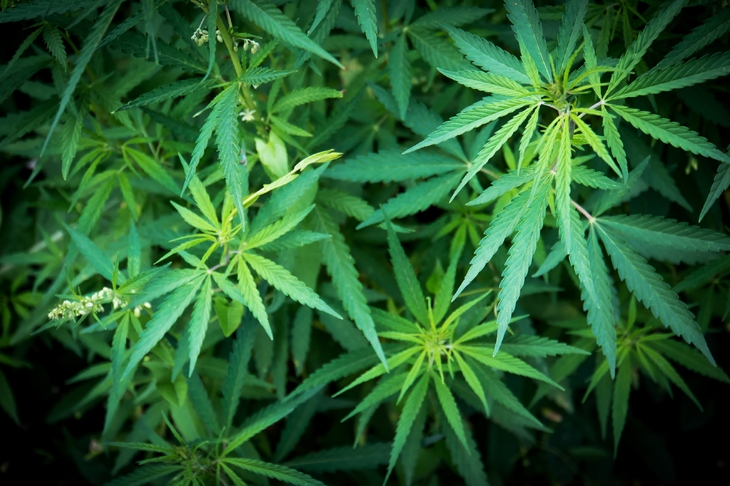Was there ever a more fatuous contribution to a political debate than Lord Hague following up the case of 12-year-old Billy Caldwell — the boy whose mother says he needs cannabis oil to control his epilepsy — with a demand for recreational cannabis to be legalised? But the former foreign secretary has done us a favour of sorts. He has inadvertently explained why Billy Caldwell has become such a cause célèbre over the past few days: the drug-legalisation lobby has cottoned on to his huge propaganda potential.
The reason why cannabis oil is not licensed for use as a treatment for epilepsy in Britain has nothing to do with the prohibition of cannabis as a recreational drug. Opiates are banned as recreational drugs but that does not prevent their routine use as a painkiller in controlled doses. Moreover, there is a cannabis-derived medicine, Sativex, which is licensed in Britain for pain relief in patients with multiple sclerosis. Cannabis oil is not licensed as a treatment for epilepsy for a more fundamental reason: there is not, as yet, good scientific evidence for its efficacy.
Science has been a remarkable missing element from the Caldwell case — remarkable because on any other subject we never hear the end of the phrase ‘evidence-based policymaking’. All we have had in this case — from the Today programme to the House of Commons — is anecdotal evidence from the mother of Billy Caldwell and the parents of other epilepsy-sufferers who claim that cannabis oil has worked wonders on their children. This has all been one-sided because the doctors treating the children are not going to speak to me or any other reporter who rings them up for their side of the story, for reasons of patient confidentiality.
Yet anecdotal evidence seems to have been swallowed whole by Jeremy Hunt, who told the Today programme on Monday: ‘I don’t think anyone can say that we are getting the law right on this’, Sajid Javid, who seems to have won a reported row with Theresa May and on Tuesday appointed Chief Medical Officer Sally Davies to conduct a review of the licensing of cannabis as a drug, and Diane Abbott, who on Monday committed Labour to legalising the use of cannabis oil for medical purposes.
But regulators — at least when not under the control of Diane Abbott — don’t license medicines on the basis of anecdote. If they did, the NHS would be merrily handing out all kinds of herbal remedies and other stuff bought on the internet which someone, somewhere swears blind has cured their condition. It is a fundamental principle that drugs undergo randomised controlled trials in which their efficacy is tested against a placebo, with neither patient nor doctor aware whether they are actually taking an active drug. This is vital because of the placebo effect, whereby people will report an improvement in their condition precipitated merely by the thought they are taking a drug.
There have been a few randomised control trials which show that an ingredient of cannabis can reduce the incidence of fits in epilepsy-sufferers who have proved resistant to other drugs. But it isn’t Tetrahydrocannabinol (THC), the principal psychoactive ingredient of cannabis and which has been touted as the magical ingredient which perked up Billy Caldwell from his hospital bed. It is Cannabidiol (CBD), which has no psychoactive effect. A study published in the Lancet in 2016 found that sufferers from two kinds of epilepsy, Dravet syndrome and Lennox-Gastaut syndrome, saw seizures fall by just over a third when given CBD. A 2017 paper in the New England Journal of Medicine reported that sufferers of Dravet syndrome saw the average number of monthly seizures fall from 12.4 to 5.9 when given CBD — compared with an average drop from 14.9 to 14.1 for a control group who were given a placebo. It is no miracle drug: the Lancet study also reported serious adverse side effects in 30 per cent of patients. Nevertheless, the evidence is such that the US Food and Drug Administration (FDA) is poised to license it as a medicine over the next few weeks, a decision that is likely to be replicated in Europe.
And THC? There is no randomised controlled trial which shows it is effective in treating epilepsy. Moreover, what research has been undertaken points in two directions: with some of it suggesting that THC is an anti-convulsant and some suggesting it can increase seizures. As for the theory that what works for epilepsy patients is some kind of magical ‘synergy’ found in natural cannabis but not in the individual ingredients, that is alchemy, not science.
So is Billy Caldwell’s mum fooling herself that cannabis oil is making her son better? I asked Gary Stephens, professor of pharmacology at the University of Reading, who has studied the potential of cannabis-derived medicines for treating epilepsy, for his view. The trouble with cannabis oil, he says, is knowing exactly what it contains. Buy a bottle off the internet and there is no knowing the relative concentrations of CBD, THC or anything else. Nor is one bottle likely to be like another. There is no knowing what negative side effects are going to result. But if Billy Caldwell’s condition really has been improved by the concoction he has been taking, the scientific evidence would point to it far more likely being CBD than THC.
But that is not, of course, what the drug-legalisation lobby wants to hear. The narrative it wants to spin is that a demented prohibitionist policy practised by the UK government is killing kids as well as taking the fun out of rock festivals. They have had plenty of help in this from Lord Hague, Diane Abbott and many others who have tried to jump on the Caldwell case without bothering much with the science which points to legalising not dope, but simply CBD.







Comments